Publications
Articles, publications, books, tools and multimedia features from the U.S. Institute of Peace provide the latest news, analysis, research findings, practitioner guides and reports, all related to the conflict zones and issues that are at the center of the Institute’s work to prevent and reduce violent conflict.
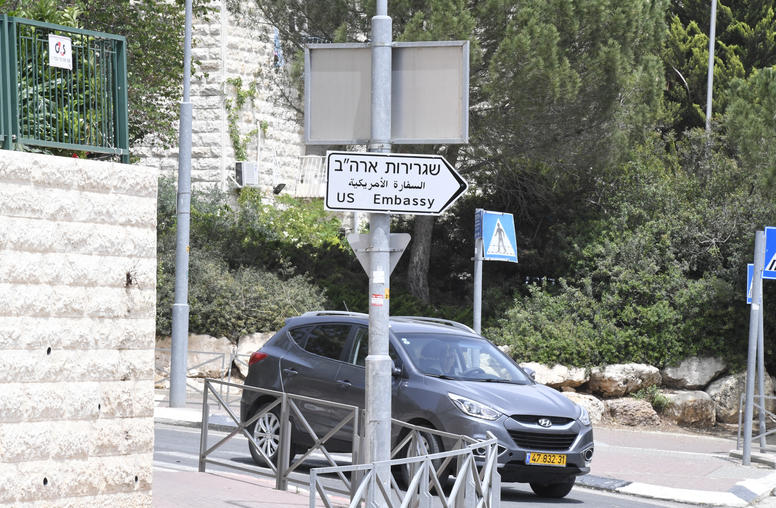
Jerusalem, Gaza, and the Unclear Road to Peace
This week, a perfect storm of politics, mounting despair, and competing narratives of historic memory and grievances converged in Jerusalem and Gaza. The effects have been devastatingly deadly. The implications for Israeli-Palestinian peace are profound.

Lucy Kurtzer-Ellenbogen on Prime Minister Netanyahu's Visit to the U.S.
This week in Washington, Prime Minister Netanyahu successfully shifted the optics from mounting domestic pressure. Lucy Kurtzer-Ellenbogen shares her analysis about Netanyahu’s warm reception at the AIPAC conference and his White House meeting focused on Iran. The conversation continues with Kurtzer-Ellenbogen explaining the latest hurdles for Middle East Peace and the anticipation for the Trump administration’s Middle East Peace Plan.
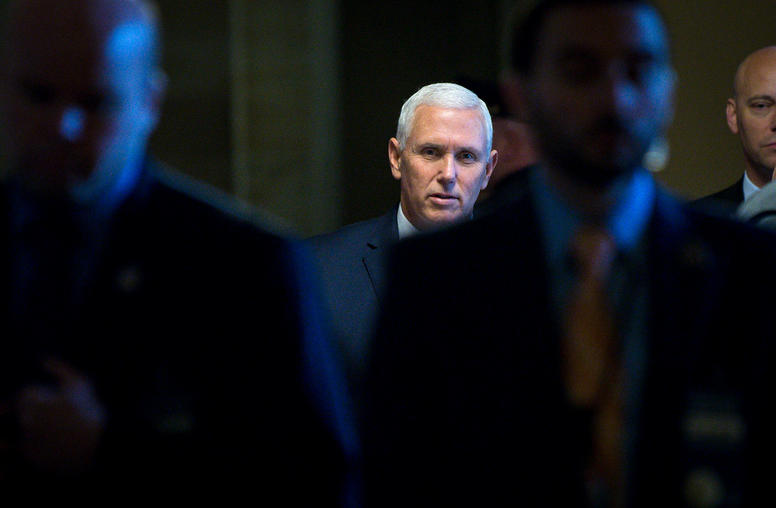
As Vice President Pence Visits the Middle East, Hopes for Diplomacy Languish
Vice President Mike Pence heads to Egypt, Jordan and Israel with little diplomatic quiet, and even less hope, on the Israeli-Palestinian front. President Abbas has declared the Oslo peace process dead, and the U.S. mediating role over, President Trump has broken with international consensus on Jerusalem, and pointedly not endorsed a two-state solution since coming to office, and Prime Minister Netanyahu has now hedged on his commitment to the end goal of a Palestinian state.
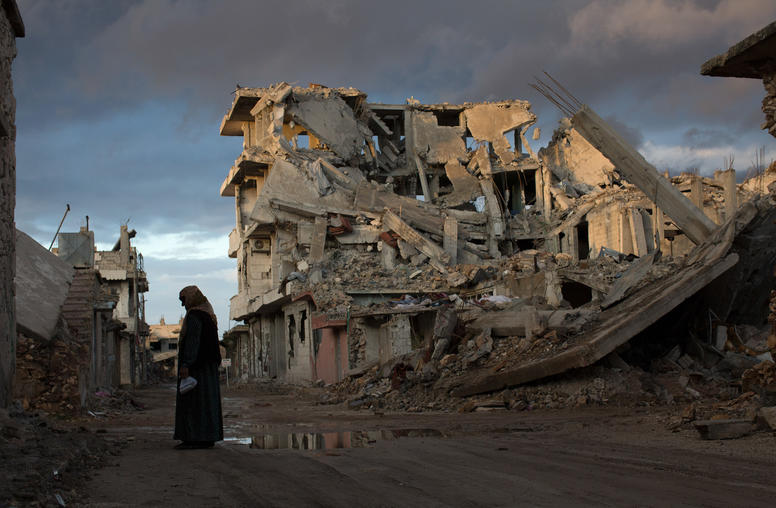
The Middle East: Divided, Dysfunctional
Even before President Donald Trump upended a core U.S. policy recognizing Jerusalem as Israel’s capital, late 2017 has been tumultuous in the Middle East. The Islamic State (ISIS) “caliphate” collapsed. Syria’s Assad regime all but won the six-year civil war, consolidating Iranian and Russian influence. Saudi Arabia purged...
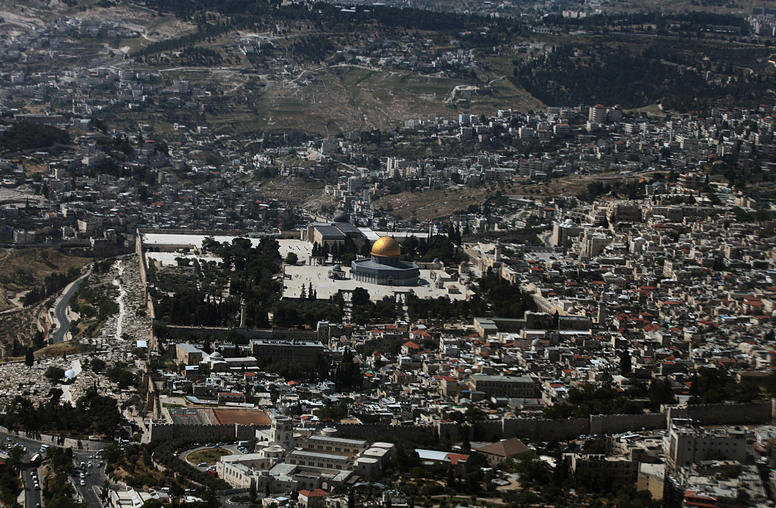
What Does President Trump’s Decision on Jerusalem Mean for Israeli-Palestinian Peace?
Today, President Trump—for the second time while in office—exercised his waiver authority on the 1995 Jerusalem Embassy Act. The law calls for the United States Embassy, currently located in Tel Aviv, to be moved to Jerusalem, in recognition of that city as Israel’s capital. The choice to waive enactment in the name of national security interests hits the president’s desk every six months and, beginning with President Clinton in 1998, has been continuously exercised by each president. But this time was different.
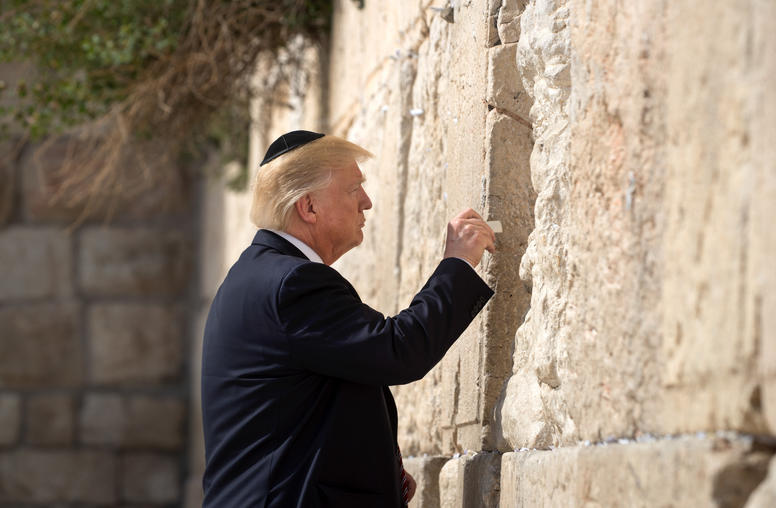
Trump Highlights Religion in Israeli-Palestinian Conflict
With the Israeli-Palestinian conflict a centerpiece of his first official trip abroad, President Donald Trump is staking out some delicate terrain. Unlike his predecessors, Trump has taken the risky step of highlighting the importance of religion to his policy goals with stops in Saudi Arabia, ...
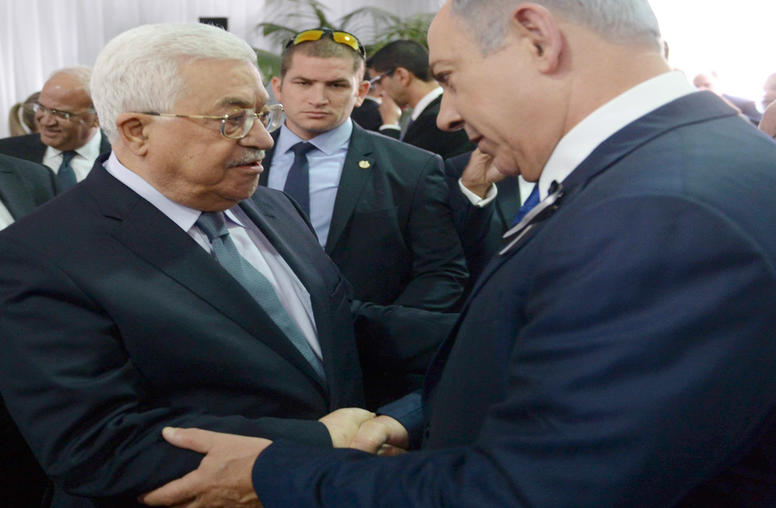
As Abbas Meets Trump, This Time Might Be Different
When President Donald Trump hosts Palestinian President Mahmoud Abbas on May 3, their discussion is bound to pivot on how to get the Palestinians and Israelis back to the negotiating table in a format that will have a better-than-even chance of success. In a March telephone conversation between the two, the new U.S. leader “emphasized his personal belief that peace is possible and that the time has come to make a deal,” according to the White House.
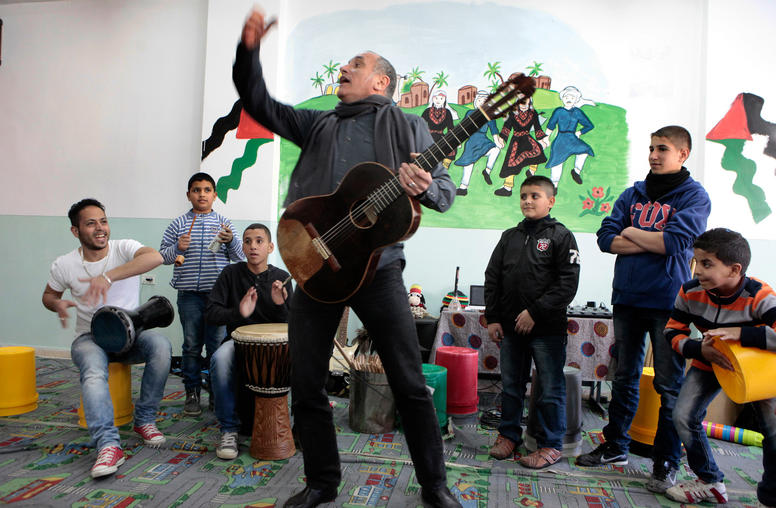
Grassroots Work in the Israeli-Palestinian Conflict
Former U.S. Senator George Mitchell, drawing on his experience negotiating the Good Friday Agreement in Northern Ireland and trying for an accord between Israelis and Palestinians, said ending violent conflict requires two critical components: committed political leadership and grassroots efforts that build bridges between peoples.
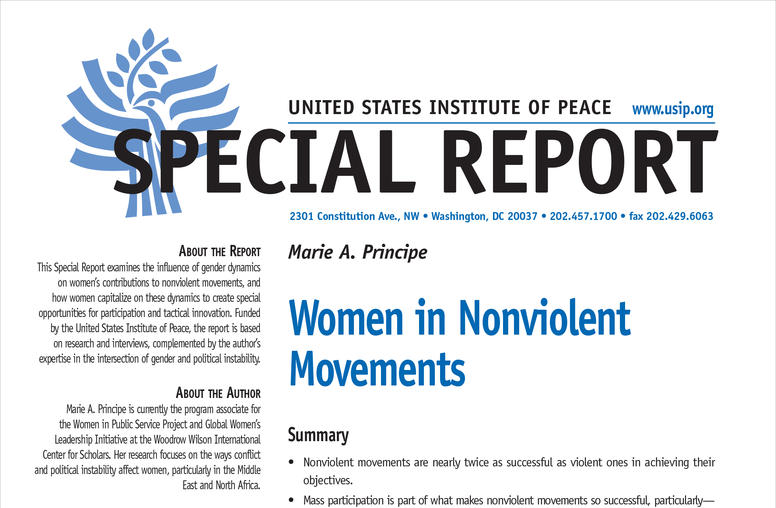
Women in Nonviolent Movements
Women’s meaningful involvement in civil resistance movements has shown to be a game changer. Examining movements in Argentina, Chile, Egypt, Liberia, the Palestinian territories, Poland, Syria, and the United States, this report advocates for the full engagement of women and their networks in nonviolent movements for a simple and compelling reason—because greater female inclusion leads to more sustainable peace.
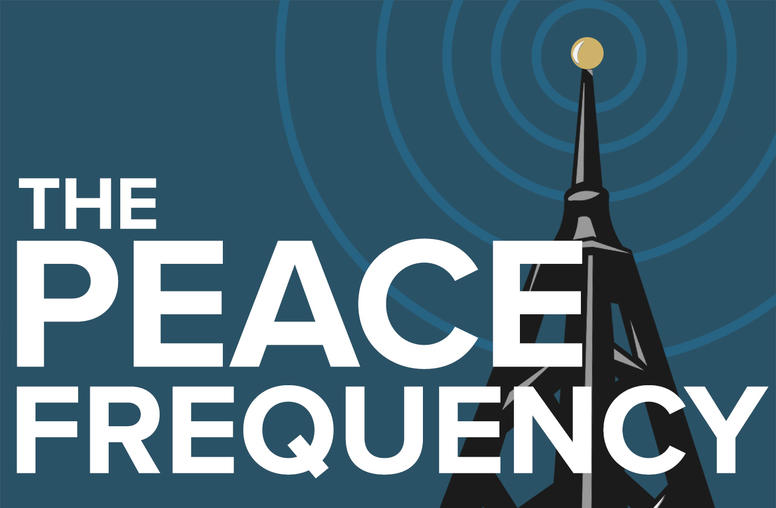
Episode 41 - Aaron Shneyer
In this episode of the Peace Frequency we speak with Aaron Shneyer, the Founder & Executive Director of Heartbeat – an organization that unites Israeli and Palestinian youth musicians to build critical understanding, develop creative nonviolent tools for social change, and amplify their voices to influence the world around them. Heartbeat staff members are trained musicians and dialogue facilitators, entrusted to create and hold a space for participants to build critical consciousness of the complicated world they have inherited and to support participants in developing skills in critical thinking, communication, leadership, and creative nonviolent civic engagement.